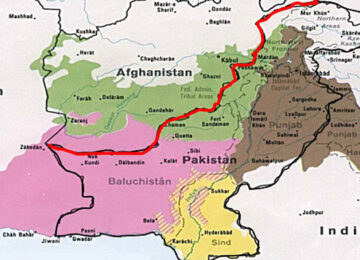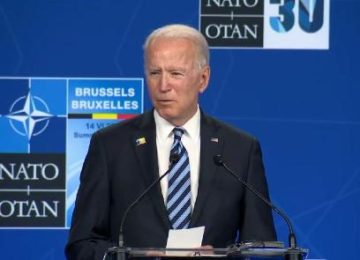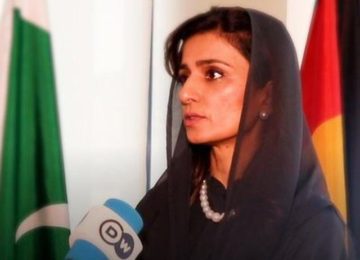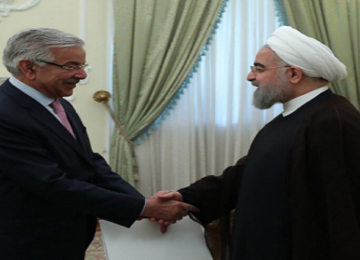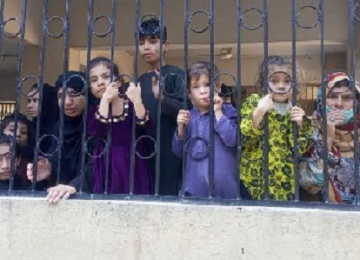July 06, 2018
Dr. Abdullah Abdullah, CEO of Afghan National Unity Government, in a meeting with Beyond Boundaries Pak-Afghan delegations, expressed renewed hope and positivity in the current political developments in Pak-Afghan bilateral relations, particularly under the Afghanistan Pakistan Action Plan for Peace and Solidarity (APAPPS) framework. While maintaining optimism, and in view of the changed circumstances, the CEO said, “There is a strong will to work on both sides to cooperate in military and civil spheres. In the overall sense, only inaction from the two governments can spoil this mechanism (APAPPS),” stressing firmly: “inaction can be the only spoiler”. Both sides, therefore, need to avoid going public with any sort of negativity, he added.
Speaking on the upcoming general elections in Pakistan (July 25) and parliamentary elections in Afghanistan (October 20), he said that this poses a new opportunity for both governments as they will have inherited a civil and military cooperation system already operational. They can work together for sustainable peace and stability. He also hinted at visiting Islamabad after general elections, provided there is positive indication from the two sides.
The meeting with the CEO was held on June 25, 2018, at his office. The complete report from the meeting is as under:
CEO Dr. Abdullah Abdullah welcomed the two delegations while noting that it was his fourth interaction with the Beyond Boundaries track II groups. He appreciated the efforts of the implementing organisations – CRSS and OESP, saying: “this is a very useful forum and you must carry on the good work that you have been doing”.
He requested the Pakistan delegation: “I would like to have your views on the new situation with political improvements and renewed optimism”.
Speaking first, the head of Pakistan delegation, Dr. Shoaib Suddle, said that this is our third meeting of the Beyond Boundaries phase III. In our recent bilateral dialogue held yesterday 24 June, we discussed the framework of APAPPS. We are glad to know and note that political relations have improved. There is a positivity in both Pak and Afghan perspectives; we feel that now things are moving in the right direction.
Mr. Qazi Humayun, former Ambassador of Pakistan, said: “our visit this time augurs well. This time we share hope and positivity. We were briefed by our Foreign Office before coming here. This is a new beginning with the APAPPS and we hope this shapes a sustainable and on-going bilateral relationship”.
Dr. Abdullah, replying to the positive feedback from Pakistan delegates, told the delegation that he was recently in Tajikistan; Pakistan President Mr. Mamnoon Hussain was also there. I requested a meeting with him, during which we had very positive discussions.
During COAS Gen Bajwa’s recent visit here, we also had very positive and good discussions, which have resulted in positive developments. We discussed the menace of terrorism faced by both countries – they attack schools, mosques, bazaars (markets), everywhere that they can attack.
Talking further specifically on Taliban, he said: “Taliban, if they think they can continue with attacks, then nothing will come out. They have to come to table for talks and negotiations, and join the peace process, by giving up arms and attacks”. We initiated the peace process including the recent ceasefire – circumstances are different- Taliban have developed new contacts to negotiate. Our expectations have to be realistic. We do understand that peace is not a ‘key’ that we can turn on every time. We need support of other countries, regional and international.
Elaborating on the recent ceasefire announced by Afghanistan government during Eid holidays, he said: “ceasefire was a good development; perhaps that was good. When we announced the ceasefire, no precautions were taken by us. People accepted it and it was peaceful during the ceasefire period; it was broadly welcomed”.
Talking on the APAPPS mechanism, the CEO said hopefully this should be a start of a positive new beginning. Both sides should not go back to square-one. I am more hopeful this time that both sides should work on the implementation of APAPPS.
Mr. Rehman Azhar, senior journalist from Pak delegation, asked the CEO that you had said both sides should not go to square-one, what should be the steps to avoid such a situation – historically we have had processes like these derailed before. International partners like China, US, and Russia; are they making things helpful for Afghanistan?
In his reply, Dr. Abdullah said that China has been very positive, friendly, and useful, and has been cooperating with us. Other international partners have all been cooperating and supporting us. The impression the Daesh is created by the West is totally false and wrong. These are indigenous people who have the mindset of terrorism and are, unfortunately, using religion as a tool.
CRSS Executive Director Mr. Imtiaz Gul, asked the CEO whether his government of office has a plan to convey to the media the success of APAPPS and whether he sees any spoilers?
In his reply, Dr. Abdullah said that everybody – including me; while maintaining our optimism, and despite circumstances having changed – is being cautious. There is a strong will to work on both sides to cooperate in military and civil spheres. In the overall sense, only inaction from the two governments can spoil this mechanism: “so, inaction can be the only spoiler.” Otherwise, it is a good comprehensive mechanism of cooperation. Both sides, therefore, need to avoid going public with any sort of negativity.
 When asked by the Pakistan delegation that there are general elections coming up in Pakistan, and parliamentary elections will be held in October in Afghanistan, how does he see the prospects of working with the new government?
When asked by the Pakistan delegation that there are general elections coming up in Pakistan, and parliamentary elections will be held in October in Afghanistan, how does he see the prospects of working with the new government?
Dr. Abdullah Abdullah stressed there should be renewed hope to improve relations between the two countries after a new government comes into power in Pakistan after July 25 elections, and also in Afghanistan following elections in October. “It will be a new opportunity for both governments”. They will have inherited a civil and military cooperation system already operational. They can work together with Afghanistan for sustainable peace and stability. He also hinted at visiting Islamabad after general elections, provided there is positive indication from the two sides.
This report is compiled by Mr. Aized Ali, Project Director, Beyond Boundaries – CRSS’ Pak-Afghan Track 1.5/II Initiative .
© Copyright Center for Research and Security Studies (CRSS) and Afghan Studies Center (ASC), Islamabad.










